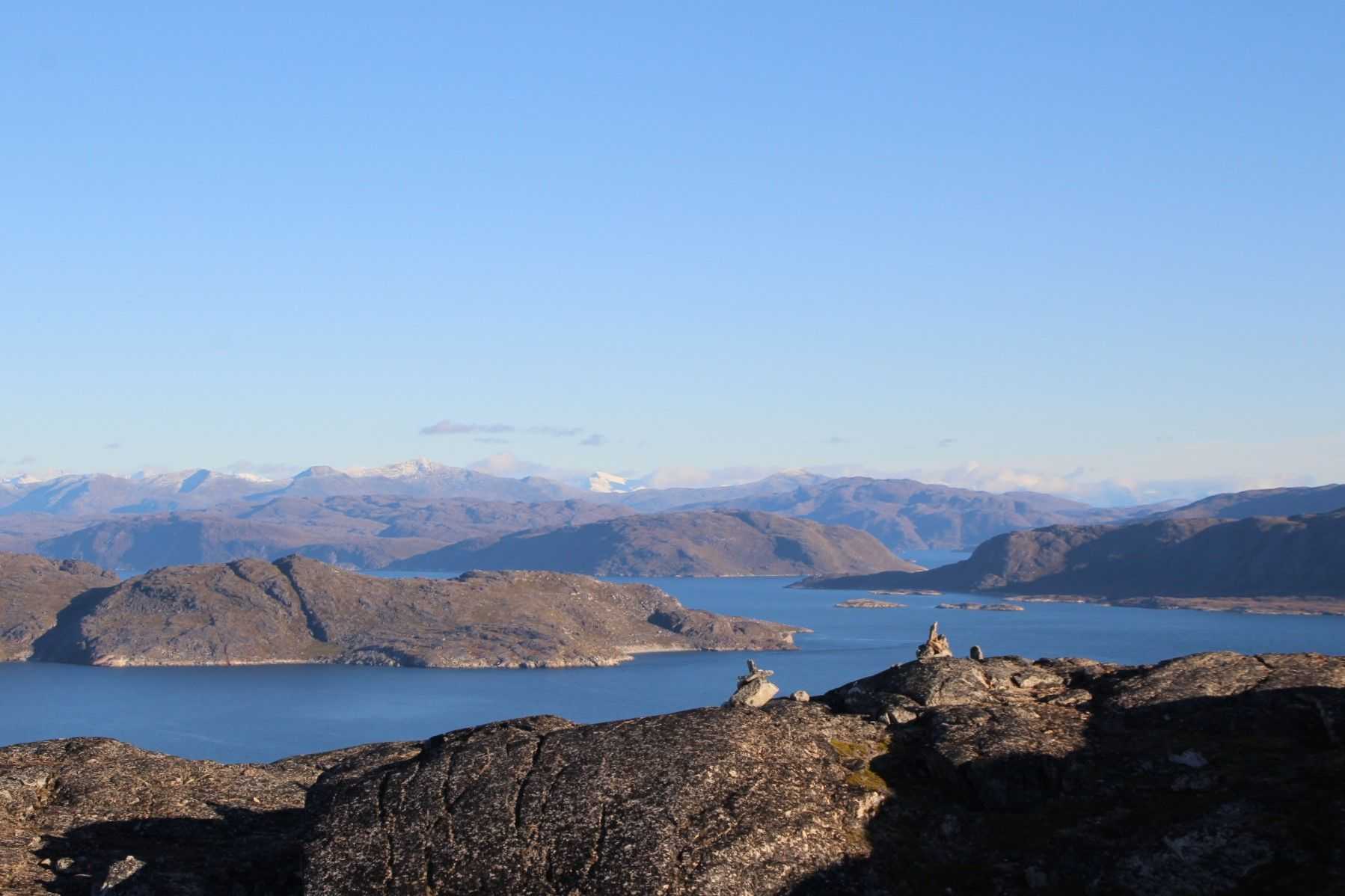Home>Environmental exploitation for better preservation? The case of Greenland

16.10.2023
Environmental exploitation for better preservation? The case of Greenland
Interview with Pia Bailleul
On 1 September 2023, CERI welcomed Pia Bailleul , who joined us for three years as part of a postdoctoral fellowship funded by the Bruno Latour Fund. The aim of this programme, initiated by Bruno Latour, is to bring to Sciences Po a group of ten or so young scientists who are at the cutting edge of the most fundamental aspects of political ecology research, from a variety of humanities and social sciences disciplines, to reflect on the consequences of ecological change. The Fund is part of Sciences Po's “Environmental Transformations Institute”, which aims to ensure the coherence and visibility of research and teaching activities on these themes. Pia Bailleul answers our questions in this interview.
Pia, could you tell us a bit about your research background and your doctoral thesis?
I am an anthropologist working on the political and social issues relating to mining resources and activities in Greenland. This interest arose while I was completing my doctoral thesis, entitled “Gisements nationaux et terres communes: étude des reconfigurations juridiques, géologiques et politiques des traitements des sols et des sous-sols groenlandais à partir de l'ethnographie du projet minier de Kuannersuit” (National deposits and common lands : study of the legal, geological and political reconfigurations of the treatment of Greenlandic soils and subsoils from the ethnography of the Kuannersuit mining project), conducted from 2017 to 2022 at Laboratoire d’ethnologie et de sociologie comparative (LESC ) in Nanterre. Based on a year-long ethnography in Greenland and a text analysis (legal, political, geological, and related to the mining sector), I studied the impacts of mining industrialisation on the restriction of collective land rights and the construction of state power. Last year, I was awarded a postdoctoral fellowship as part of the Agence Nationale de la Recherche (ANR) Ruling on Nature (RulNat ) research programme led by the anthropologist Daniela Berti, during which I focused on rare earth projects and the social and political implications of developing this new resource.
You are currently working on mining projects in Greenland and their consequences for the territorialisation of the state and Greenland's relationship with Denmark. Could you explain what you mean by the “frontier zone” and its implications for your research?
I approach the “frontier zone” as a phenomenon of spatial organisation driven by the will to exploit resources. Whereas in many contexts the frontier zone is described in this way by external stakeholders who exploit resources to the point of exhaustion, with no interest in the local population or the environment, in Greenland it is a matter of a national orientation with a view to independence (through mining rents). In Greenland, the frontier zone is the result of negotiations between the mining companies that explore the subsoil and successive governments that use it for political purposes. The challenge for me is, on the one hand, to grasp the space that this situation creates and the specific social and political implications that it poses for extractivism in the Arctic. On the other hand, it is a means for broader comparison, through the study of a case that presents the establishment of the frontier zone, rather than its stage of exhaustion, as is often the case. The Greenland frontier zone is still in the early stages of actual exploitation, and studying it will help us to understand how a mineral becomes a resource (stakeholders, links between the geological, legal, and political orders of a given material), and therefore to follow the phenomenon of spatial composition as it develops.
How do you intend to use your postdoctoral stay at Sciences Po to further your research?
During my three years as a postdoc at CERI and as part of the Bruno Latour Fund, I intend to develop the geopolitical dimension of my work. I am looking at the development of critical metals projects in Greenland with a view to understanding the impact of the European Green Deal, and more specifically the “resilient” resource supply strategy, on extraction in the Arctic and the way it is represented. How is the so-called European green resilience being exploited in one of the territories most affected by global warming, and what are its social, environmental, and local political effects? How is collaboration between Greenland and Europe on critical metals changing pan-Arctic political relations? As part of our scientific activities (Interdisciplinary Environmental Research Workshop - AIRE , seminars), we will be looking more broadly at what this “green and polar frontier” can teach us about Europe’s energy “resilience”.
What is your approach to fieldwork? Do you have any fieldwork planned for the next few months?
Over the next few months, I am primarily going to be concentrating on the European and industrial aspects of this research. I plan to travel to the European institutions to interview people involved in the metal supply strategy. In 2025, I will conduct an ethnographic mission to Greenland to meet political leaders and carry out observations and interviews at sites targeted by mining projects.
Interview by Miriam Périer, CERI.
Cover image caption: Inussut (cairns), mining projects and the Greenland ice cap. Qaqortoq, October 2022. (credits: Pia Bailleul.)
Follow us
Contact us
Media Contact
Coralie Meyer
Phone : +33 (0)1 58 71 70 85
coralie.meyer@sciencespo.fr
Corinne Deloy
Phone : +33 (0)1 58 71 70 68
corinne.deloy@sciencespo.fr
